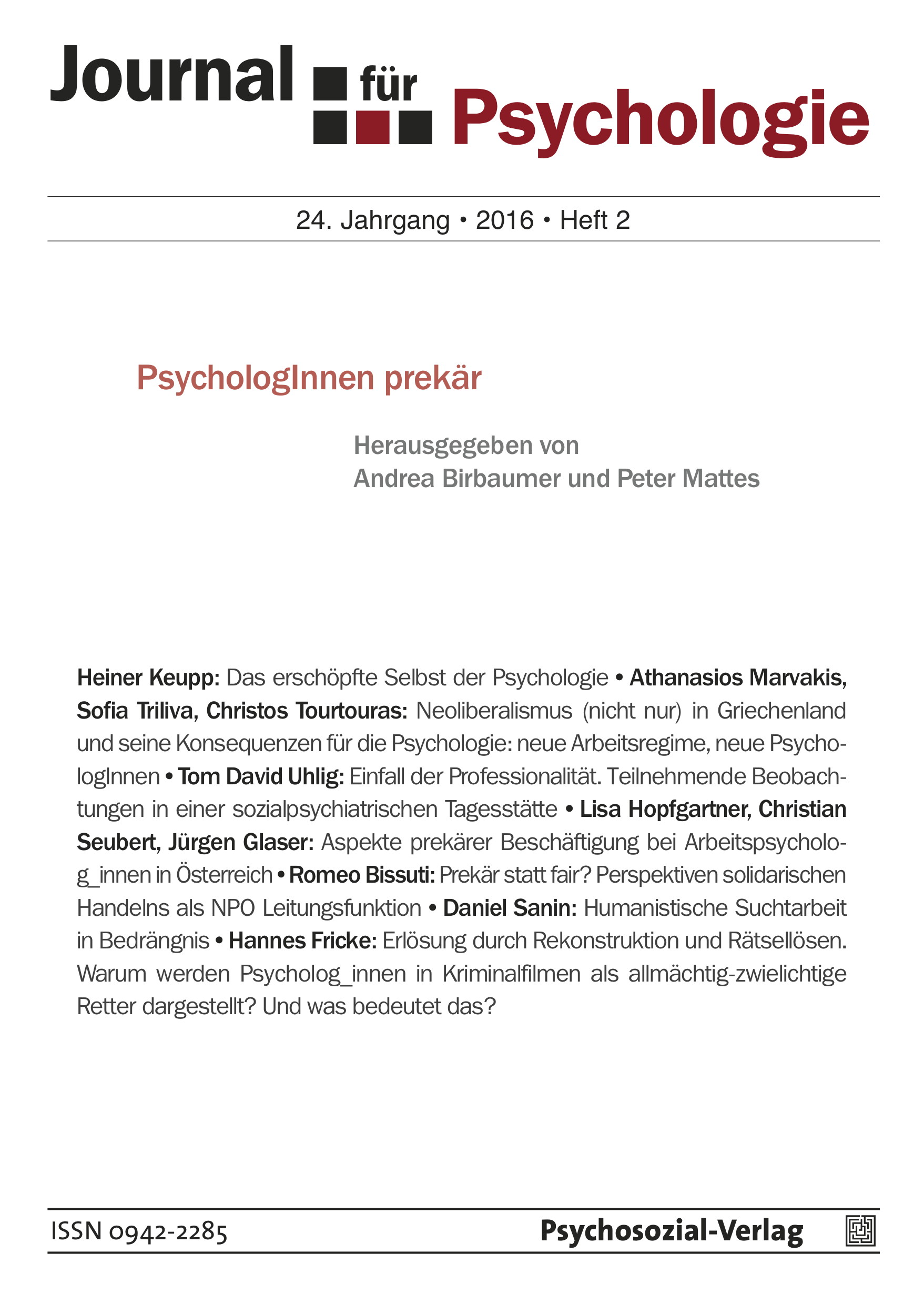Redemption through reconstruction and solving riddles. What is the reason why psychologists in crime-movies are often portrayed as almighty and shady saviors? And what does that mean?
Keywords:
belief in a just world, countertransference, excessive demands, life-stories, redemption, serial-killers, works of art as mirrorsAbstract
Works of art can due to their abstractness mirror expectations toward certain groups. Often, subliminal fears and conceptions of wishes shape these expectations. Especially in crime movies, a curious doubling in the underlying demands on psychologists appears: At the same time, they should reconstruct what has happened, should solve the problem, as well as to convict the perpetrator and save and protect future victims. The characters lead to conclusions on the basic tensions apparent in the often unconsidered picture of the task and the efficiency of the work of psychologists. The examination of several characters in television-series and films (from Dr. Eddie »Fitz« Fitzgerald and Dr. Hannibal Lecter to Dr. Helen Hudson) introduces the topic. A close-reading of the character Dr. Vera Bergman in the German Tatort Heimatfront (homefront) reviews the results and leads to more general conclusions. As a theoretical base, I choose narratological accounts, countertransference-analysis as defined in literary theory by Carl Pietzcker and Melvin Lerner's »Belief in a just World«.Downloads
Published
2016-12-06
How to Cite
Fricke, Hannes. 2016. “Redemption through Reconstruction and Solving Riddles. What Is the Reason Why Psychologists in Crime-Movies Are Often Portrayed As Almighty and Shady Saviors? And What Does That Mean?”. Journal für Psychologie 24 (2). https://journal-fuer-psychologie.de/article/view/415.
Issue
Section
Schwerpunkt
License
This license allows private use and unmodified distribution, but prohibits editing and commercial use (further information can be found at: https://creativecommons.org/licenses/by-nc-nd/4.0/).
The terms of the Creative Commons licence only apply to the original material. The reuse of material from other sources (marked with a reference) such as charts, illustrations, photos and text extracts may require further permission for use from the respective copyrights holder.



